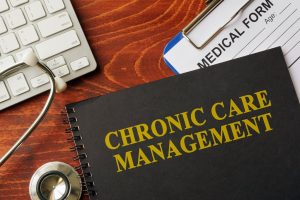
Chest pain is a common symptom caused by a variety of symptoms, from mild to severe. Although your chest pain can be caused by a problem that shouldn’t be a cause for concern, it is still a good idea to see a doctor.
Chest pain is also one of the five upsetting symptoms that designate a life-threatening illness that needs instant attention. It is important to know when your chest pain is from a mild illness and when not, as one wrong decision can damage your health, cause permanent injury, or even death.
What Does Chest Pain Mean?
Chest pain is caused by various medical conditions. Some are insignificant, some are serious and life threatening. Symptoms of chest pain also vary from person to person and condition, so there are no specific rules for determining the appropriate time to see an emergency doctor.
In some cases, mild chest pain can indicate coronary artery disease. About 30% of heart attacks cause mild symptoms that most people are unaware of. This type of heart attack is known as a silent heart attack.
How Do We Make A Decision?
While there are no specific rules for diagnosing heart attacks that require urgent treatment, some general guidelines can help you decide when chest pain is severe. Note, however, that these are guidelines only and it may be better to follow this rule to stay healthy.
Signs That Chest Pain Is The Result Of A Serious Illness
Chest pain can be caused by a life-threatening condition and requires immediate medical attention in the following situations.
You are over 40 years old and have a family history of one or more CHD risk factors, such as smoking, high cholesterol, obesity, and diabetes.
- You have a family history of early heart disease or disease development
- Chest pain occurs with shortness of breath, dizziness, loss of consciousness, sweating, weakness, or nausea.
- The pain comes with a feeling of pressure, heaviness, or tightness in the chest
- The pain is stronger than the previous experience
- Pain arises from the arms, jaw, or shoulders
- The pain intensifies in the first 10-15 minutes
- The pain is strong and intense
- Less serious signs
- Chest pain may specify a less severe condition in the subsequent circumstances
- Pain occurs with a certain movement of the body
- The pain occurs for a short time without any further symptoms
- You’ve had the same pain in the past and a medical exam ruled out heart disease
When To Call An Ambulance
If you experience symptoms that suggest your chest pain needs emergency medical care, be sure to see an emergency doctor. However, in some cases, mild chest pain can indicate a serious medical condition.
If your chest pain is unusual or interfering with your normal activities, contact your nearest heart hospital in to have it checked. Still, if the pain is benign, you may need to consult your doctor to learn more about your symptoms.
Assessment Of Chest Pain
If you need emergency medical care for chest pain, it is best to call the emergency helpline to be taken to a nearby emergency room. A paramedic can do a quick initial exam to stabilize your condition before you get to the emergency room.
When you see a doctor, they will do an exam to see if the chest pain you are having is chronic or severe. Chronic chest pain occurs over a long period of time, while acute chest pain occurs suddenly and quickly.
Acute Onset Of Chest Pain Symptoms
If your doctor determines the onset of severe chest pain, your doctor will do the following.
- Get a brief medical history
- Do a physical exam
Perform An Echocardiography (EKG) Test
Order a blood test to measure your heart enzymes
An exam will help determine if your heart condition is urgent. If your doctor still has doubts about the severity of your condition, you may need to do additional tests based on your doctor’s likely health.
In an emergency, a health professional will conduct an assessment to rule out the most dangerous conditions, such as acute coronary syndrome (ACS), with or without a heart attack.
Your doctor will also diagnose unstable angina, as prompt and comprehensive treatment is needed to prevent permanent damage to the heart. If your doctor suspects ACS, you may be referred to the intensive care unit for treatment.
Your doctor may recommend other tests and exams, such as cardiac catheters, computed tomography (CT), EKG, or thallium scan, to help make an accurate diagnosis.
If a paramedic rules out a life-threatening condition, he or she will make an approximate diagnosis before taking you to a doctor for further evaluation and treatment.
Chronic, Recurring, Or Non-Acute Symptoms
If you have had chest pain in the past, your doctor may consider testing your angina. Angina is caused by typical CAD, but in some cases it is caused by a rarer heart condition such as heart syndrome x or coronary artery spasm.
Reliant on the analysis, you may need to refer a cardiologist for a complete assessment.
If a doctor suspect’s chest pain causes other than angina, they will provide an accurate diagnosis to begin treatment. Depending on the likely cause of the chest pain, your doctor may do lung function, x-ray, GI, and other important tests.
Conclusion
The first thing you should do if you have chest pain is to make sure that it is not permanently harming or killing the cardiovascular system. You can do this by finding an ambulance and consulting your doctor to assess your condition to see if it is a life-threatening condition. Based on the results of your examination, your doctor will recommend the necessary treatment or further medical examinations.




